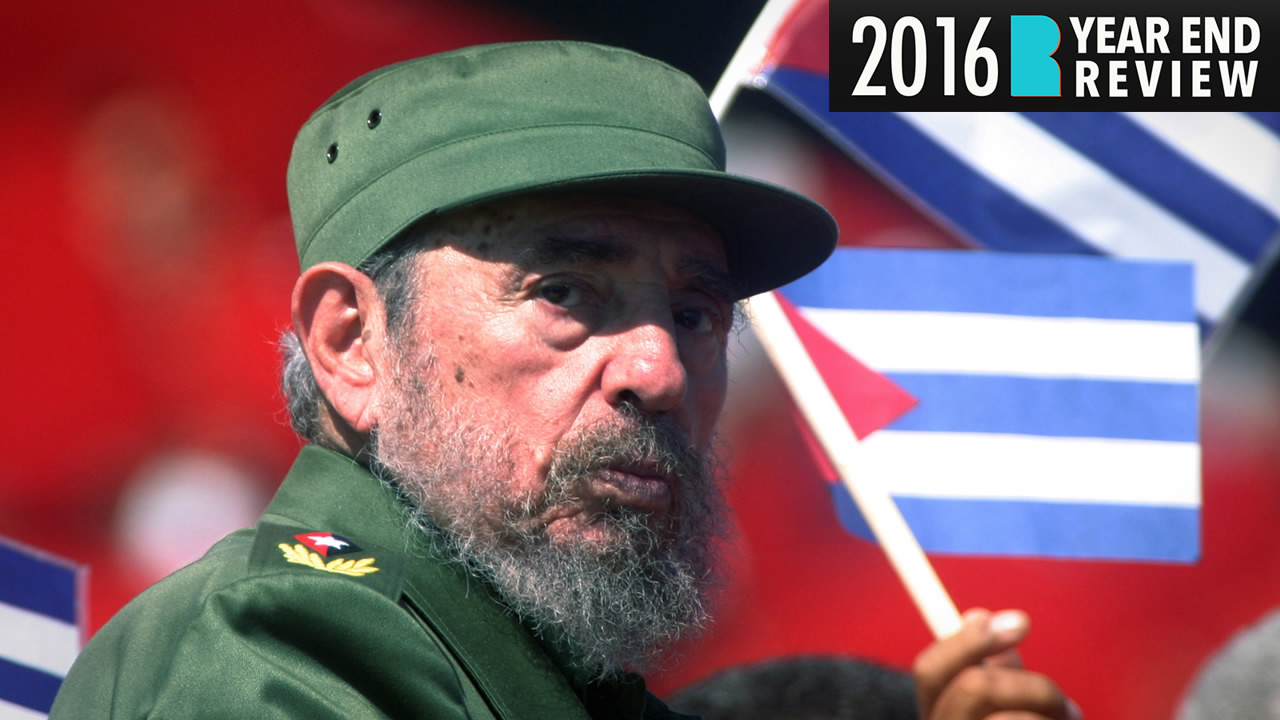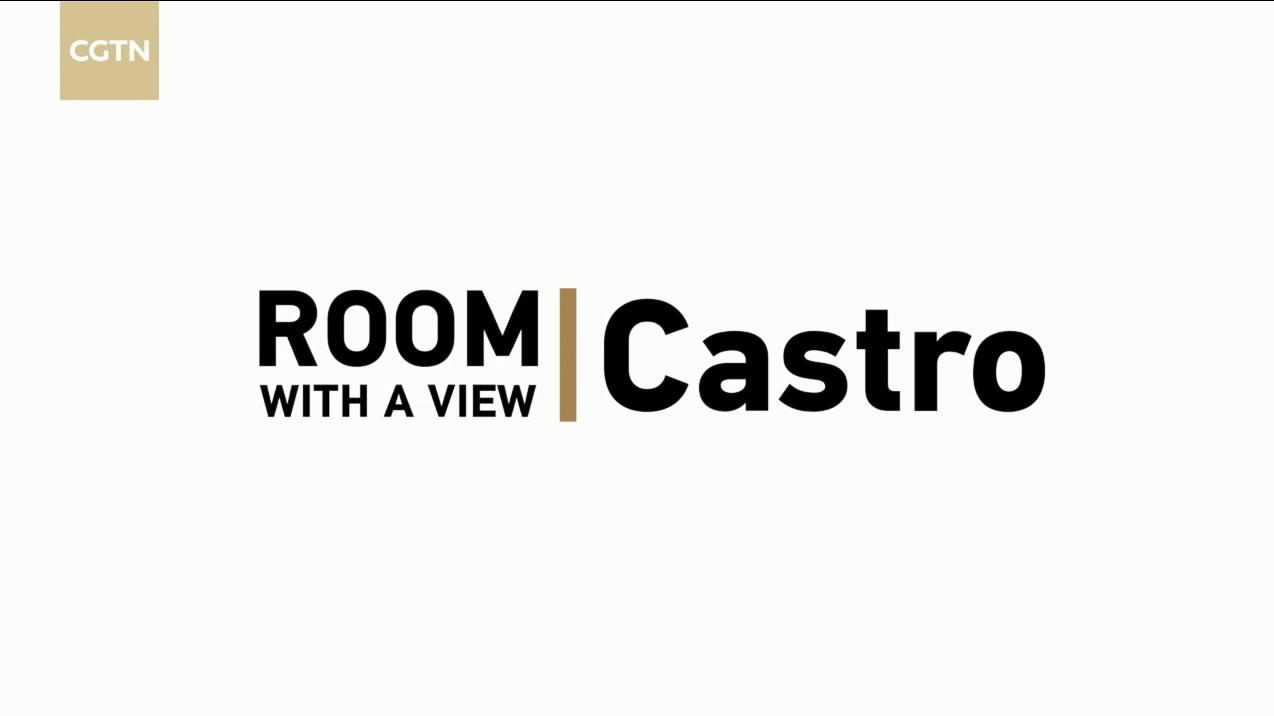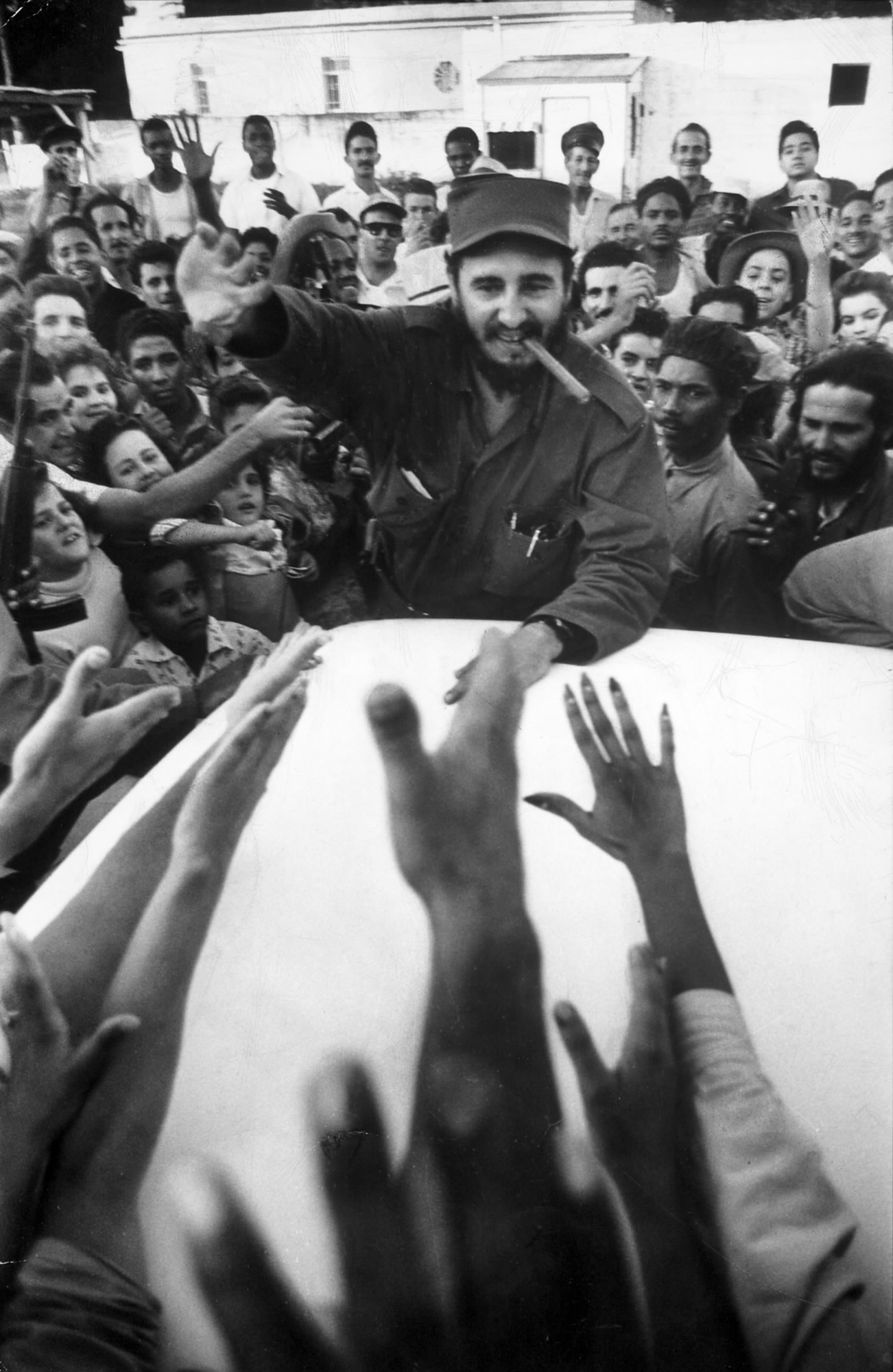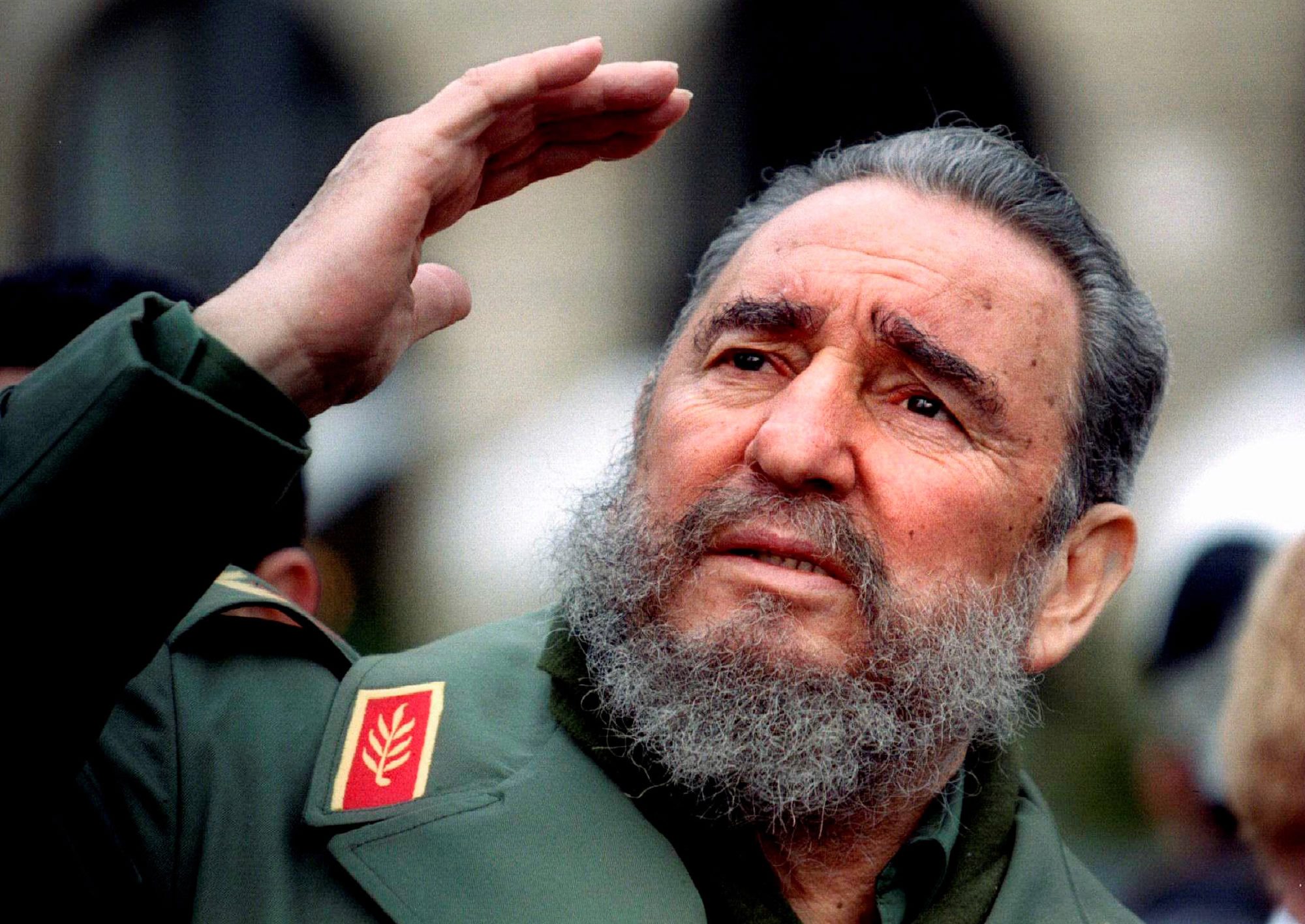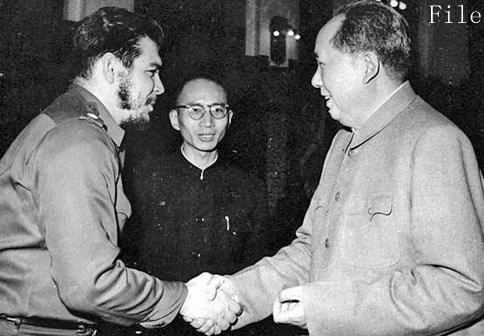-Fidel Castro, the Cuban revolutionary leader, dies at the age of 90 on November 25
-Mourning on the streets of Havana, while Cuban-Americans celebrate in Miami
-Cuba-US relations at a critical juncture; normalization policy under Obama could be in jeopardy with the election of Trump
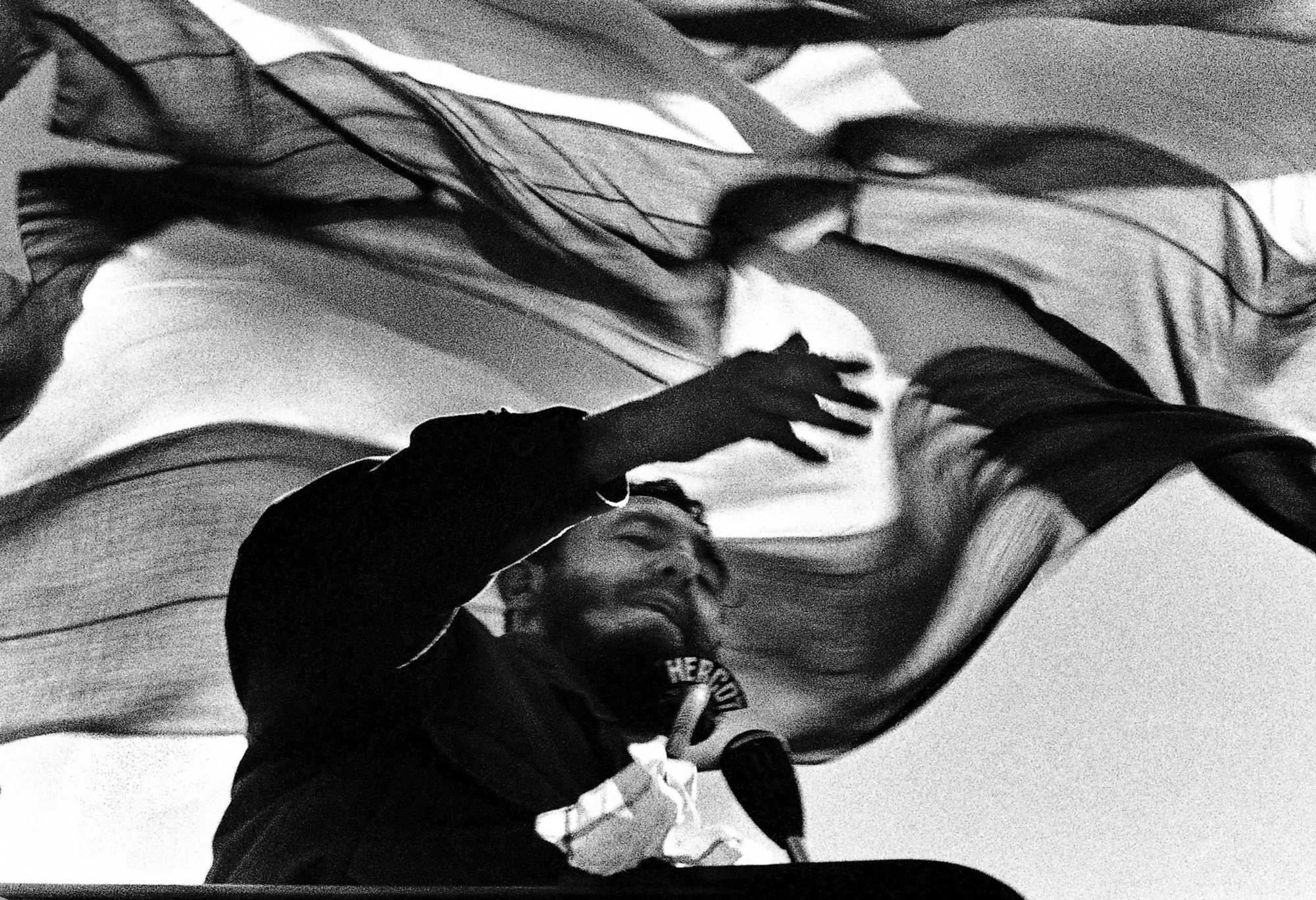
Fidel Castro speaks in Chile, 1972 /CFP Photo
Fidel Castro speaks in Chile, 1972 /CFP Photo
Fidel Castro may have faded from the forefront of world politics in recent years, but his name continued to prick ears even as ill health forced him to take a backseat in Cuba. So when the Cuban revolutionary leader’s younger brother Raul announced the 90-year-old’s death on November 25, both new and traditional media were flooded with tributes or criticisms and memories of a true icon of our times.
Taking a podium in Cuba’s Plaza of the Revolution on the last day of November, heads of state, prime ministers and diplomats paid tribute to Fidel Castro in a ceremony draped in solemn memorial for the late leader. Castro had himself stood in that same spot, delivering inspirational speeches before the Cuban people.
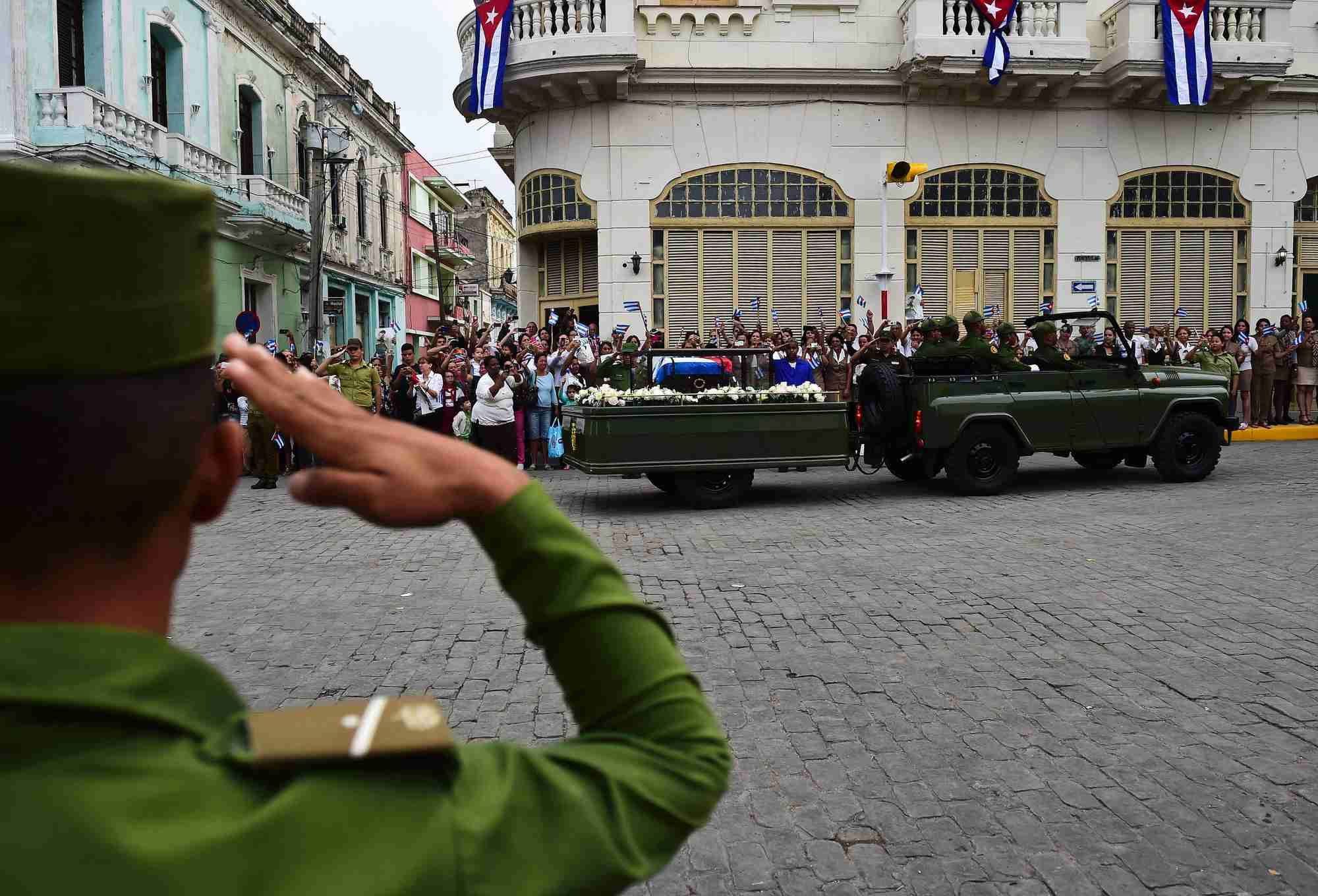
Cuban leader Fidel Castro’s funeral cortege makes its way through Santa Clara, Cuba, on December 1, 2016. /CFP Photo
Cuban leader Fidel Castro’s funeral cortege makes its way through Santa Clara, Cuba, on December 1, 2016. /CFP Photo
Chinese Vice President Li Yuanchao, attending the event on behalf of President Xi Jinping, went to Jose Marti Memorial to the north of Plaza of the Revolution to pay condolences and lay a wreath in memory of Castro. Li also conveyed Xi's deepest condolences to Castro's family members.
WORLD LEADERS REACT
Chinese President Xi Jinping: "The death of Comrade Fidel Castro is a great loss to the Cuban and Latin American people. The Cuban and Latin American people lost an excellent son, and the Chinese people lost a close comrade and sincere friend. His glorious image and great achievements will go down in history.”
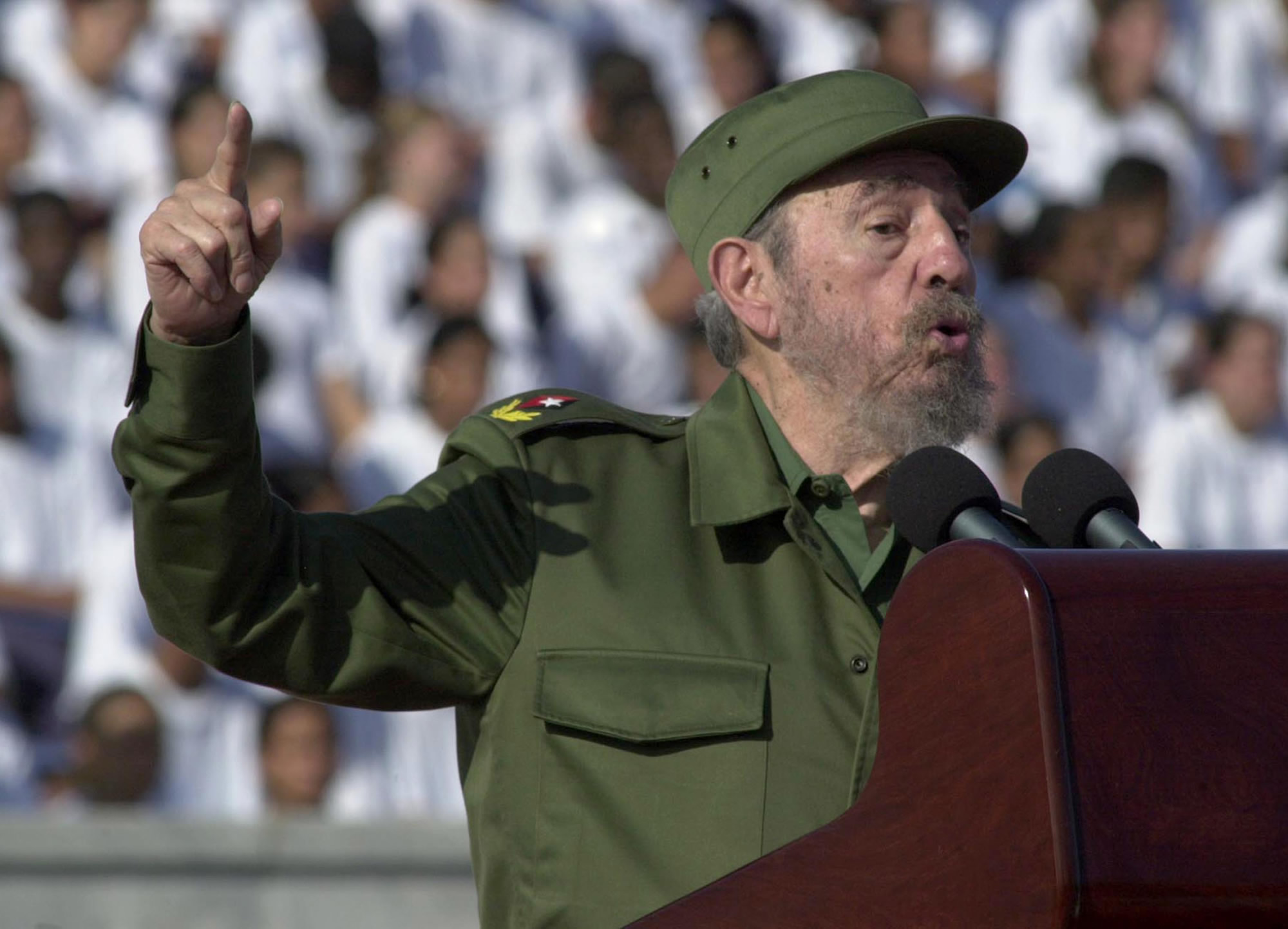
Fidel Castro, May 1, 2004 in Havana, Cuba/CFP Photo
Fidel Castro, May 1, 2004 in Havana, Cuba/CFP Photo
US President Barack Obama: "At this time of Fidel Castro’s passing, we extend a hand of friendship to the Cuban people. History will record and judge the enormous impact of this singular figure on the people and world around him.”
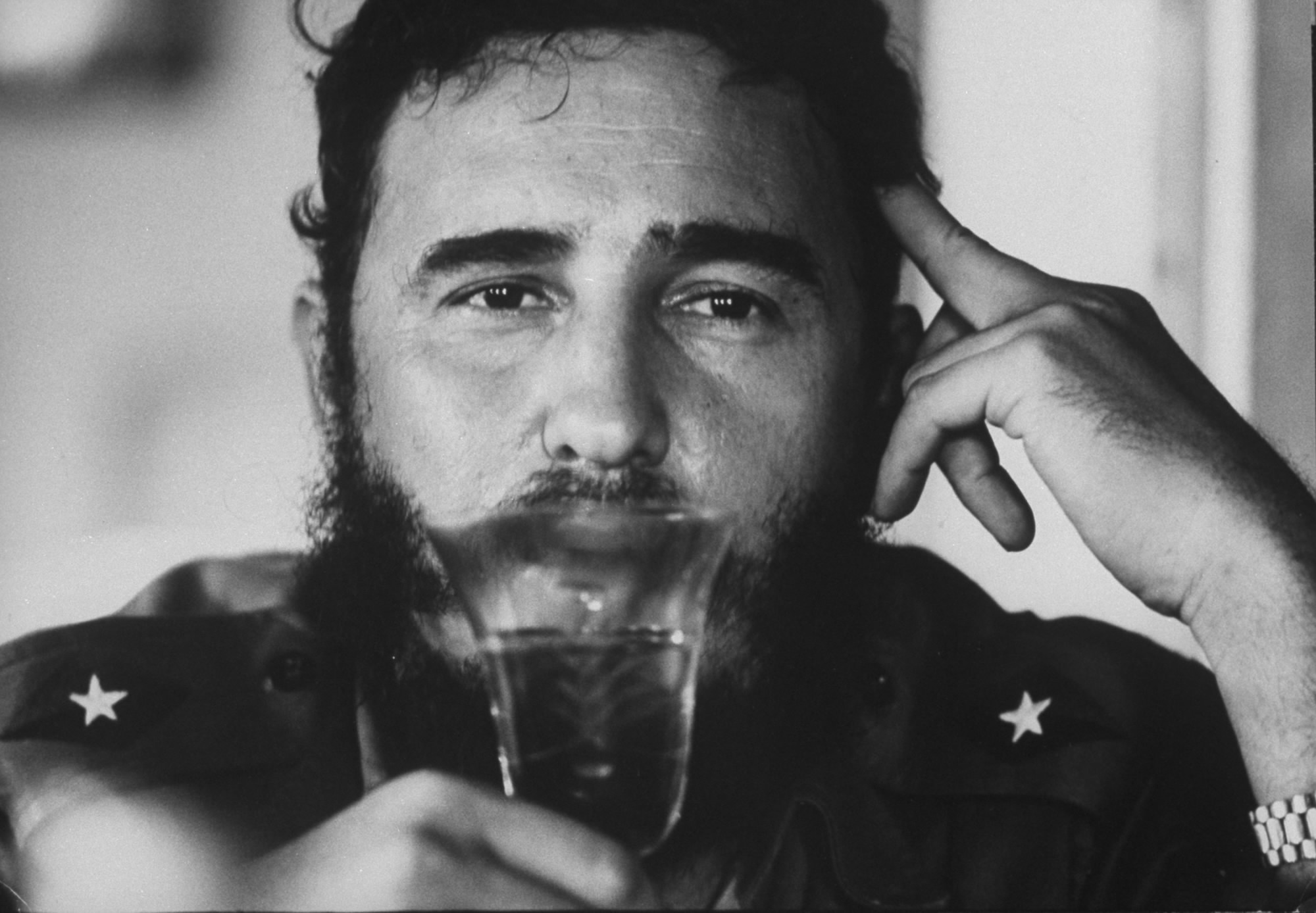
Fidel Castro, July 1964 /CFP Photo
Fidel Castro, July 1964 /CFP Photo
Russian President Vladimir Putin: “The free and independent Cuba, built by him and his comrades, has become an influential member of international society and served as an inspiring example for many countries and people. Fidel Castro was a frank and tried and true friend of Russia.”
THE HISTORY
In 1956, Castro initiated a guerrilla war along with Argentinian Marxist revolutionary Che Guevara to overthrow US-backed dictator Fulgencio Batista. Three years later, at the age of 32, he became the leader of Cuba.
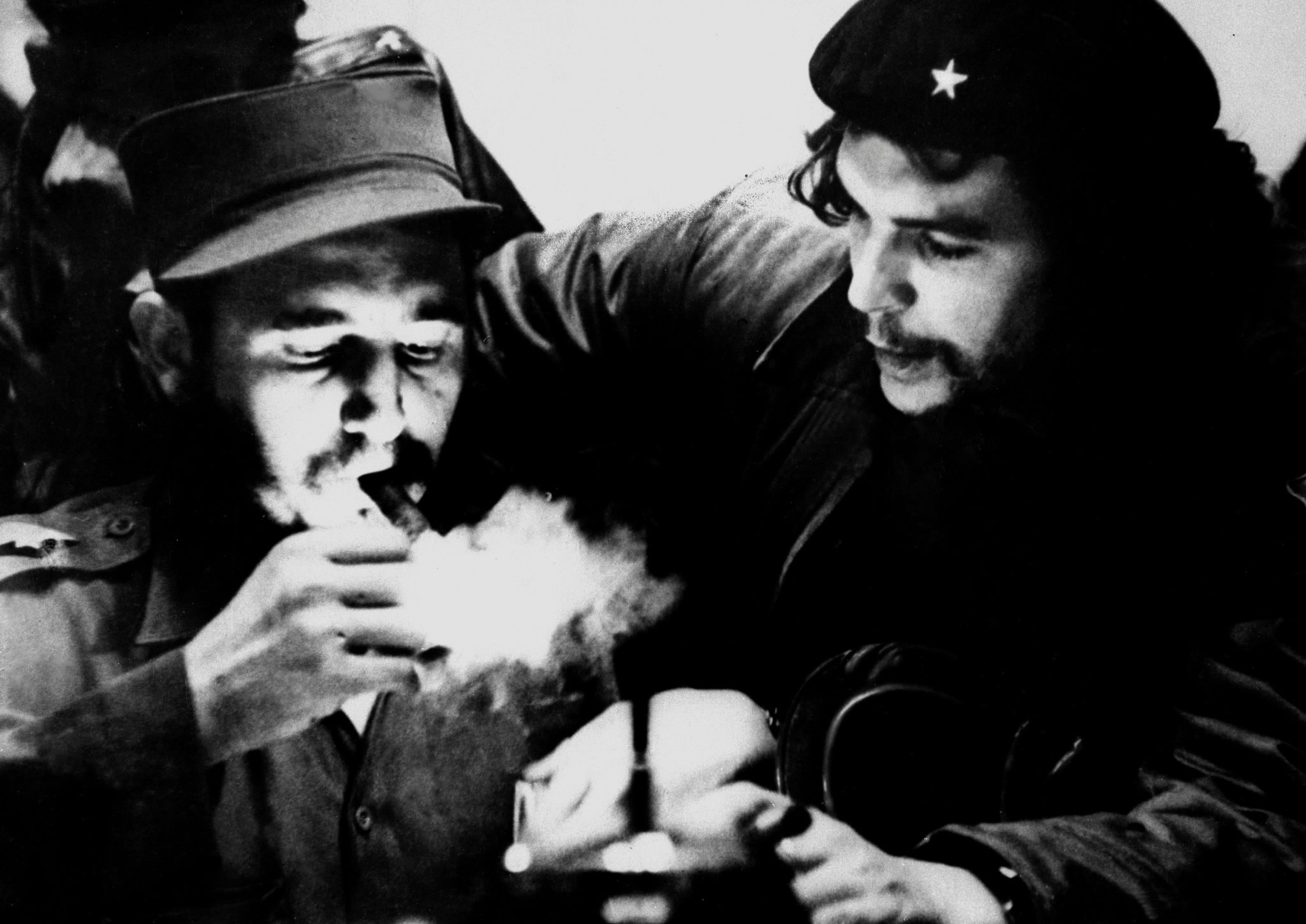
Fidel Castro and Che Guevara (R)/CFP Photo
Fidel Castro and Che Guevara (R)/CFP Photo
In 1961, a CIA-led military invasion attempted to overthrow Castro but was unsuccessful, leading to an icy diplomatic relationship and decades of economic sanctions. The US made repeated efforts to destabilize Castro’s Cuba, often through thwarted attempts to remove its leader.
"If surviving assassination attempts were an Olympic event, I would win the gold medal," Castro once said in reference to the rumored 600-plus attempts to kill him.
Castro seemed irremovable, however, outlasting nine US presidents while in power. He seized control of Cuba while Dwight Eisenhower occupied the White House and stepped down towards the end of George W. Bush's second term. The elder Castro started to retreat from the public eye in 2006 following intestinal surgery, and handed control to his younger brother Raul in 2008.
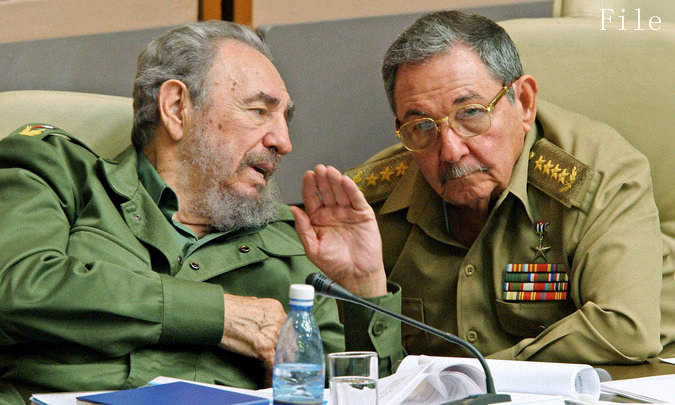
Fidel Castro and his brother Raul Castro in December 2003. /AFP Photo
Fidel Castro and his brother Raul Castro in December 2003. /AFP Photo
For his supporters, Fidel Castro was a great leader who gave Cuba “back to the people.” His defenders argue that he oversaw social progress, including racial integration, universal education and health care. They fault the US embargo for the country's economic woes. But he has also been accused of suppressing opposition on the island and pursuing policies that damaged the country’s economy.
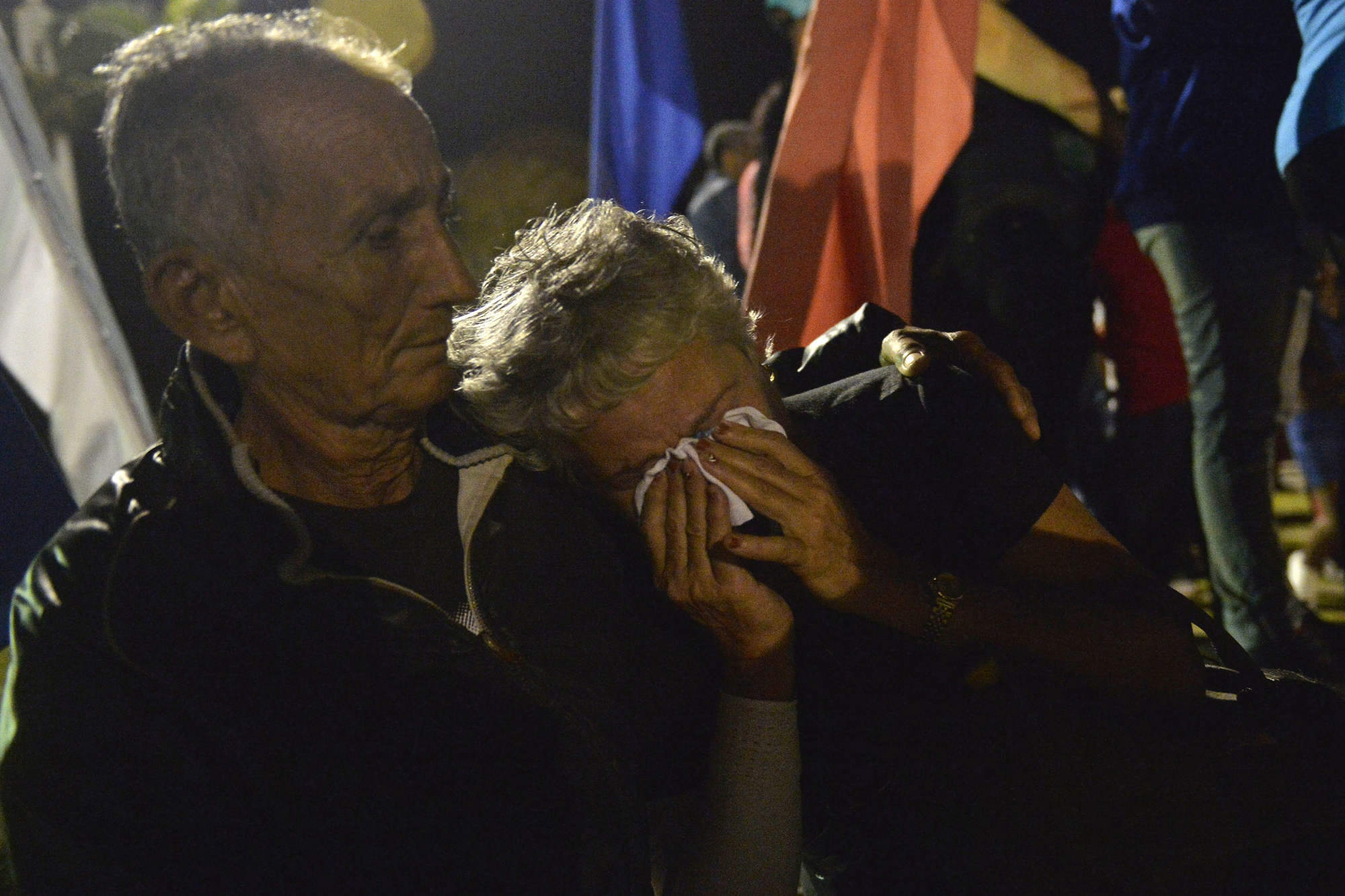
A woman cries as she watches Fidel Castro’s funeral cortege pass by in a farewell procession in Santa Clara, Cuba, on Dec.1, 2016. /CFP Photo
A woman cries as she watches Fidel Castro’s funeral cortege pass by in a farewell procession in Santa Clara, Cuba, on Dec.1, 2016. /CFP Photo
Reaction to Castro’s death in the US was a mix of jubilation and condemnation. Castro was a thorn in the side of the superpower throughout his life time in power, and was said to have been lukewarm at his successor’s decision to re-establish ties with the US after nearly a century.
CUBA-US NORMALIZATION
Cuba and the US re-established diplomatic relations in 2015. The warming of relations was marked by Barack Obama becoming the first US president to visit the island since 1928.
The US-Cuba normalization didn't lift the 1962 embargo that banned all exports to Cuba except medicine and food. But President Obama used executive orders to loosen travel and trade restrictions, lift some limits on remittances and allow US banks' greater access to Cuba.
In 2015, both countries re-established embassies and the US removed Cuba from a list of state sponsors of terror.
The White House said its goals were to promote government interaction, contacts between the US and Cuban peoples, Cuban integration into international and regional systems, and greater respect for human rights, freedoms and democracy.
Internet access in Cuba is extremely restricted, but tech giants such as Google and Facebook have fought to gain an imprint in the country. And within a month of Castro’s death, it was announced that Google had reached a deal with state telecommunications company Etecsa to install servers on the island.
But the election of Donald Trump has cast doubt on the immediate future of Cuba-US ties. The president-elect has criticized Obama’s decision to lift sanctions and allow commercial flights between the countries, and sections of the Republican Party remain fiercely opposed to the Cuban government. But will Trump’s pro-business instincts win out?
CUBA AND CHINA
Fidel Castro worked hard to promote China-Cuba relations. Half a century ago, Castro guided his country to be the first in Latin America to forge diplomatic relations with the new China.
Just one year after the Cuban revolution, Castro sent his friend and revolutionary comrade Che Guevara to visit Beijing. And the friendly greeting between Chairman Mao and Guevara in 1960 was an early sign of a sound China-Cuba relationship that has remained strong for more than 50 years.
In recent years, economic ties between China and Cuba have developed quickly. Frequent visits to Cuba by top Chinese leaders have signaled to the world that the political and economic relationship between Beijing and Havana is resilient.
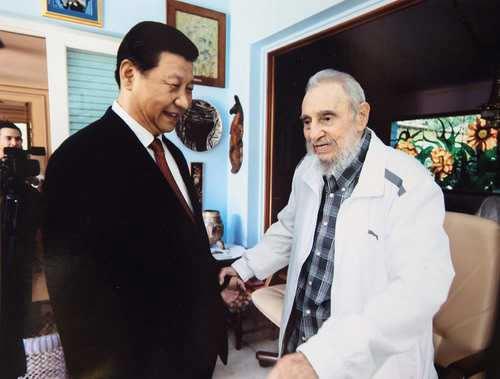
Chinese President Xi Jinping (L) visits Fidel Castro in Havana, July 22, 2014. /Xinhua Photo
Chinese President Xi Jinping (L) visits Fidel Castro in Havana, July 22, 2014. /Xinhua Photo
Times are changing, and now the two developing countries are bolstering their relationship further with stronger economic ties. Raul Castro has been keen to press the button on a new reform and development plan since he took office.
Chinese investment in Cuba and growing trade between the two countries will likely help achieve those aims. China has been Cuba’s second largest trading partner, after Venezuela, for ten years and Cuba is now the biggest trading partner for China in the Caribbean area.
China-Cuba bilateral trade has witnessed rapid growth, totaling around 2 billion US dollars in 2015, an increase of about 59 percent on 2014.
“(The Cuban) people will carry on the unfinished lifework of Comrade Fidel Castro, turn sorrow into strength and keep making new achievements in the cause of socialist construction,” Chinese President Xi said in tribute. “The great Comrade Fidel Castro will be forever remembered.”
Questions for 2017
-Raul Castro is 85 – where will the next Cuban leader come from? Will Fidel’s death accelerate change in the country?
-What will Donald Trump’s election mean for US-Cuba relations? He has vowed to lead a pro-business administration, but must balance that agenda with previous criticism of the decision to lift sanctions and opposition to the current Cuban leadership from within his own party.
-Google has signed a deal with Cuba to install servers on the island, just weeks after Castro’s death. Is censorship and access to social media in Cuba set to be relaxed? Is this a sign that Cuba is willing to open up?
(Written by Wang Mingyan; Edited by John Goodrich; Video edited by Zhou Jinxi; and Room with a View produced by Tian Yi)

